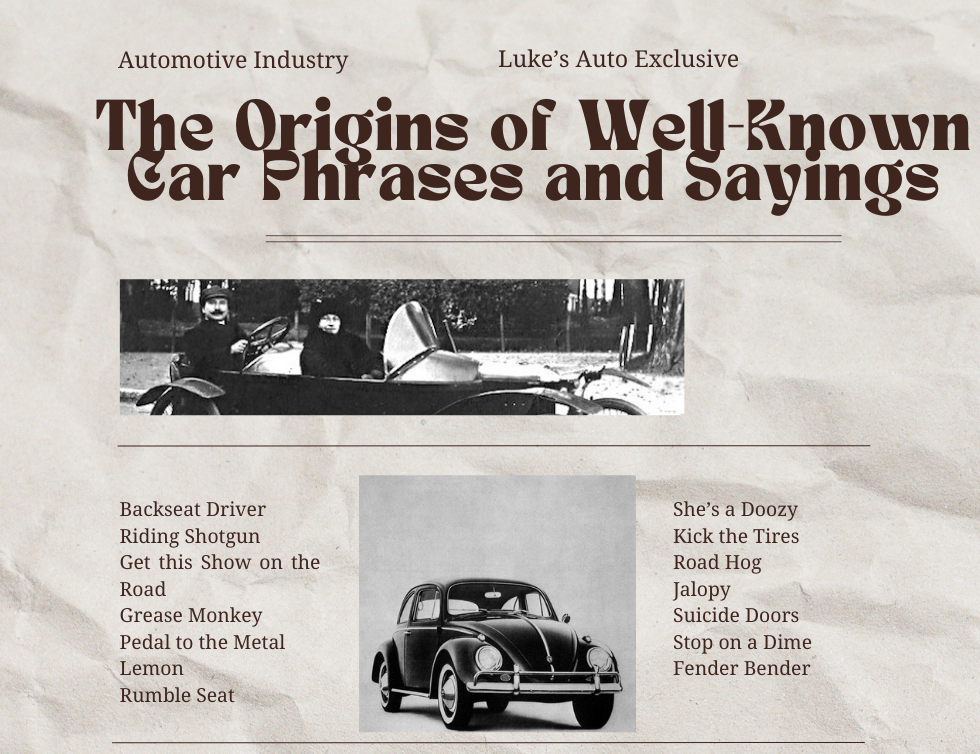

Have you ever been called a backseat driver or yelled “shotgun” when claiming the passenger seat? We all may have wondered where famous car-related words and phrases come from. We’re here to debunk the backstory of some common idioms and expressions you might hear more often than you think! Let’s take a drive through a list of commonly used car idioms and expressions and origins.
Backseat Driver
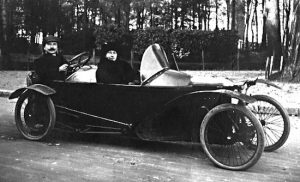
This term gained popularity in the U.S. during the early 1900s when car ownership surged. However, its roots go further back, initially describing those who drove luxury vehicles from the rear, leading to the term “backseat driver.” This term was once a description rather than an insult, with the earliest known reference found in a 1914 newspaper.
Riding Shotgun
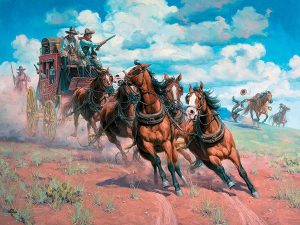
Originating from the American stagecoach era spanning two centuries from the early 1700s, the term ‘riding shotgun’ finds its roots in the sparsely populated Western regions where rough roads, limited support, and threats led to armed guards positioned beside stagecoach drivers. These were often armed with shotguns for protection. The term gained popularity in movies like ‘Stagecoach’ in 1939 and ‘Riding Shotgun’ in 1954. By the 1960s, it had seeped into American culture, becoming a common way to claim the front passenger seat with the simplified ‘I call shotgun.’
Let’s Get This Show on the Road
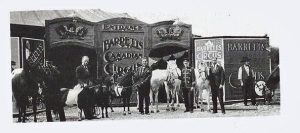
Getting things moving, whether in a literal or figurative sense, is what we do when we ‘get the show on the road.’ This phrase traces its roots back to the early 1900s when it emerged in reference to traveling circuses and various entertainment acts. The notion was that once the show hit the road, it was officially underway.
Grease Monkey
The term “Grease Monkey,” commonly used as a somewhat derogatory term for a mechanic, is traced back to Great Britain’s Industrial Revolution. During this era, children played a significant role in greasing the axles of steam engines. As they crawled and worked on the large machinery, they frequently got covered in grease, which led to them being nicknamed “Grease Monkeys.
Pedal to the Metal
The phrase “pedal to the metal” didn’t originate with racecar drivers, surprisingly. Its roots lie in the trucking and CB radio community, where it describes fully depressing the accelerator pedal for maximum speed. This straightforward expression was valuable, especially during discussions regarding speed, traffic conditions, and road hazards. Over time, it extended beyond the trucking world, becoming a well-known term for pushing a vehicle to its top speed or performance.
Lemon
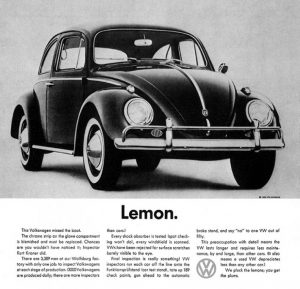
In early British and American slang, “lemon” described a scam or selling a subpar item as superior, leaving buyers disappointed upon closer inspection. Eventually, this term extended to defective cars, solidified in the 1960s by an infamous Volkswagen ad featuring a failed vehicle with the headline “Lemon.” Today, the term “lemon” is not only commonly used in everyday language but has also found its way into consumer protection laws, where it refers to persistently faulty vehicles
Rumble Seat
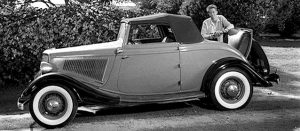
Known as the “mother-in-law seat,” the rumble seat was a common feature in cars during the early 20th century, often positioned at the car’s rear and exposed to weather, thus earning its nickname. This unique feature was introduced by coachbuilders who had experience in constructing horse-drawn carriages.
She’s a Doozy
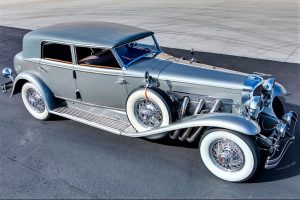
The phrase “she’s a doozy” likely originated from the exceptional reputation of Duesenberg automobiles, especially the Model J, known for their exceptional engineering and luxury during the early 20th century. Owners considered them extraordinary, leading people to use “doozy” to describe anything remarkable or challenging, giving rise to the expression to signify something outstanding or difficult. This association with the high standard set by Duesenberg cars contributed to its adoption in everyday language.
Kick the Tires
Stumped on this one? You’re not alone. The Chicago Tribune consulted Goodyear’s tire experts, but even they couldn’t provide a definitive answer. Nevertheless, they offered several explanations:
- In the past, when cars and horses shared the road, pedestrians would kick vehicle tires to remove manure from their shoes. Observing this, motorists may have interpreted it as a way to check their tire condition.
- Truck drivers once used the method of striking their tires with a tire billy to test air pressure.
- An alternative theory suggests that this car idiom might have originated from the Latin phrase “E tira kikium,” which translates to “a kick for good luck.”
Road Hog
If you come across a driver on the highway who’s using two lanes, you might call them a “road hog,” suggesting they’re selfish or inconsiderate. This term draws from the notion of hogs being associated with greed and selfishness, implying that the driver is unfairly taking up more road space and potentially causing problems for other vehicles. It’s a phrase that dates back to the late 1800s.
Jalopy
The word “jalopy” is an informal term used to describe an old, run-down car. It likely comes from the name of Xalapa, Mexico, where in the early 1900s, the U.S. often sent old cars to be refurbished, resold, or scrapped. This term emerged in American slang during the 1920s and has since been used to describe worn-down automobiles.
Suicide Doors
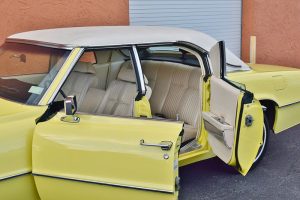
“Suicide doors,” referring to car doors hinged at the rear rather than the front, likely gained their name due to the perceived danger of opening them while the vehicle was in motion. They were a feature seen on some early automobile models in the 1930s and 1940s, appreciated for their distinctive and stylish appearance. However, as safety regulations evolved, the use of suicide doors declined due to the associated safety risks, such as passengers potentially being ejected from the vehicle in case of accidental opening. In recent years, there has been a resurgence of interest in suicide doors as a design feature, often used to give vehicles a retro and distinctive look, with modern engineering and safety measures making them safer than their historical counterparts.
Stop on a Dime
This phrase has been in use since at least the 1920s. In this expression, the dime is used metaphorically to represent a short distance. When talking about a car, this saying brings to mind the idea of the car’s wheels stopping very quickly, as if they were stopping right on top of a dime, without actually running it over.
A Fender Bender
This expression is straightforward, referring to the protective covers for a car’s wheels. The term’s appeal lies in its rhyme – “bender” rhymes with “fender,” and it likely originated in the 1960s. Interestingly, the word “fender” dates back to the 13th century, initially as a shortened form of “defender”.
In a world filled with cars and the open road, these phrases and sayings have revved up our language and culture. From the days of stagecoaches to the speedsters on modern highways, these expressions have fueled our conversations with a dash of history, a pinch of humor, and a whole lot of horsepower. So next time you hit the road, remember the stories behind these words, and enjoy the journey with a little extra flair!
References and images:
